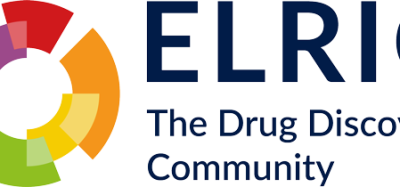Spirulina’s role in shaping the future of preventative biologics
Posted: 14 April 2025 | Drug Target Review | No comments yet
From law to biotech, Brian Finrow’s career path has been anything but conventional. As Co-founder and CEO of Lumen Bioscience, he’s steering the company’s innovative approach to drug discovery, focusing on preventative biologics that offer scalable, cost-effective solutions. Find out how Finrow’s unique spirulina-based platform is changing the way we think about healthcare.


The antibiotic market has long faced significant barriers to innovation, with structural issues that make it difficult for new antibiotics to gain traction. As the demand for novel antibiotics remains limited due to the preference for cheaper generics, the market has struggled to incentivise much-needed breakthroughs. This is where Brian Finrow’s expertise comes in. As the CEO of Lumen Bioscience, Finrow is tackling these challenges head-on by focusing on innovative preventative biologics that could transform the way we address infections and healthcare at large.
Originally trained as a lawyer, Finrow spent nearly a decade at Cooley LLP, a US biotech law firm. His work focused primarily on representing biotech start-up’s and their venture capital investors. A deep interest in political science and the political economy of drugs led him to focus on how drugs are priced and distributed across different jurisdictions. Despite the seemingly distinct worlds of law and biotech, Finrow believes the two share a critical intersection. “I originally trained as a lawyer, and I practised law for nearly a decade at the top US biotech law firm (Cooley LLP). There I mostly represented biotech start-up’s and their VC investors,” says Finrow. “Sometimes this surprises people, but it shouldn’t. When you think about what a company is, it’s nothing more than a nexus of legal relationships.”
Finrow’s role at Lumen Bioscience reflects his diverse expertise. As CEO, he oversees everything except the science, which is driven by his co-founder, Jim Roberts. His responsibilities span a wide range, from regulatory strategy to intellectual property, manufacturing and commercial partnerships.
The challenge of antibiotic innovation
The antibiotic market, despite its essential role in public health, has long been hindered by structural challenges that limit innovation. These challenges include the lack of financial incentives for companies to invest in developing new antibiotics. With many healthcare systems prioritising cost-effectiveness, there is limited demand for novel treatments, even though they are crucial to combatting antibiotic resistance.
Finrow highlights the economic challenges within the sector, particularly the reluctance of doctors to use new antibiotics when cheaper generic options are available. This leads to a market where the demand for novel antibiotics is limited, making it difficult to recoup the significant investment required to develop them. “The antibiotic market has some structural issues that make it very difficult to attract investors,” Finrow explains. “Doctors face incentives to prioritise generic antibiotic use first because they are cheaper, leaving novel antibiotics as a last resort. This is understandable – we want the healthcare system to deliver affordable care, but it means that the market for new antibiotics is going to be small.”
The antibiotic market has some structural issues that make it very difficult to attract investors.
For Finrow, this problem is compounded by the difficulty investors face in justifying the high costs of developing antibiotics, particularly when the return on investment is unlikely. “Investors are not fools, so they can see this,” he says. “They are legally obligated to be good stewards of the money entrusted to them… so they simply cannot invest in money-losing ideas.”
In response to this challenge, Lumen Bioscience has shifted its focus to preventative antimicrobials. Preventative drugs, unlike antibiotics used to treat infections, are taken proactively, which opens a broader market. Finrow explains how this preventative approach helps circumvent the economic barrier that has long plagued antibiotic innovation.
“By definition, preventative drugs are taken by a larger number of customers because you never know exactly who’s going to get an infection – it’s probabilistic. This translates into a larger market, which is therefore, at the margin, more likely to be economically viable.” This model not only promises a broader market but also presents tangible benefits for patients. By preventing infections before they occur, these drugs reduce the need for hospital treatments, including the costly intensive care unit (ICU) care that can burden healthcare systems.
The spirulina-based platform
Lumen Bioscience’s approach to drug development is radically different from traditional biopharmaceuticals. The company leverages a spirulina-based platform, which brings with it unique regulatory and legal challenges. Spirulina, an edible photosynthetic microbe, offers an innovative way to produce therapeutic proteins such as antibodies or enzymes directly inside the organism. The ability to engineer spirulina in this way offers significant advantages in terms of manufacturing costs and scalability.
“Spirulina is an edible organism that raises different questions about manufacturing controls, scale-up and delivery,” Finrow explains. “We had to build our own Good Manufacturing Practice (GMP) facility for this work. That means we engage regulators early, share data on quality, safety and consistency, and collaborate on adapting regulatory guidelines that were generally written for injected biologics for this novel therapeutic modality.”
As with any novel approach, Lumen faced challenges in navigating regulatory frameworks for spirulina-based therapeutics. Traditional biologics often involve recombinant protein expression in mammalian cells or microbes like E. coli and yeast, but spirulina presents a new set of considerations. Finrow notes that their intellectual property strategy required new types of patents and trade secrets, as spirulina-based therapies had not been fully explored in the biotech space.
Lumen Bioscience’s approach to drug development is radically different from traditional biopharmaceuticals.
“We had to build intellectual property strategies around a production organism that’s relatively unfamiliar in biotech, requiring new types of patents and trade secrets,” he says. “This was an iterative process that involved close interaction with patent offices and agencies in multiple jurisdictions.”
Cost-effective and scalable
Lumen’s spirulina-based platform has the potential to significantly reduce the costs of biologic therapies while simultaneously improving access to these treatments. Traditional biologics manufacturing can be complex and expensive, making it difficult to offer affordable therapies for widespread diseases. By contrast, spirulina can be cultivated in simple, water-based systems, enabling a far more scalable and cost-effective process.
“It’s simple in principle. We genetically engineer spirulina to express therapeutic proteins – like antibodies or enzymes – right inside the organism,” Finrow explains. “Spirulina thrives in simple, water-based cultivation systems, so the manufacturing process is scalable and cost-effective. Because it’s an edible organism, we can formulate our therapies in a way that’s orally delivered, stable without cold-chain logistics in some cases, and targeted directly to the mucosal tissues.”
This new approach not only lowers production costs but also offers a novel route of administration, making therapies more accessible to broader patient populations, including those in lower-income regions. Finrow believes this is crucial for addressing widespread conditions such as obesity and inflammatory bowel disease (IBD), where cost and scalability are significant barriers to treatment.
“Our platform was designed from the start to be both flexible and high-volume. Traditional biologics manufacturing can drive up costs, limiting the ability to serve large patient populations in a financially sustainable way. Spirulina-based production scales in straightforward cultivation systems, which keeps costs under control. That opens the door to developing therapies for prevalent conditions like obesity and IBD, where you need both efficacy and affordability.”
Collaborating for a preventative future
Lumen’s vision for preventative biologics extends beyond its own capabilities. Finrow emphasises the importance of strategic collaborations with large healthcare systems, payers and academic labs to push the boundaries of what’s possible in preventative medicine.
Effective collaborations with large healthcare systems, payers and philanthropic organisations are crucial.
“Effective collaborations with large healthcare systems, payers and philanthropic organisations are crucial,” says Finrow. “We cannot do everything well. Strategic partnerships with these entities allow us to integrate preventative biologics into existing care pathways, ensuring broader coverage and patient access.” Additionally, Lumen is seeking partnerships to address the global footprint of diseases like infectious diseases, which require distribution networks that the company currently lacks. For these global challenges, collaborations are essential to ensure the company’s therapies reach the people who need them most.
Opportunities and risks ahead
Looking forward, Finrow sees significant opportunities in shifting the focus of biotech from treatment to prevention. By focusing on preventing diseases before they occur, healthcare systems could dramatically reduce hospitalisations and long-term complications, saving resources in the process. “One opportunity is transforming the global healthcare cost structure. Preventative therapies could dramatically reduce hospitalisations, decrease long-term complications, and free resources for other healthcare priorities,” he explains.
However, the shift to prevention also comes with challenges. Finrow acknowledges that current financial incentives and reimbursement models still favour treatment after problems arise. Overcoming these barriers, along with continued investment in novel manufacturing approaches and regulatory pathways, will be critical to unlocking the full potential of preventative biologics. “We also need sustained investment in novel manufacturing approaches and regulatory pathways to maintain momentum in this new direction.”
A new era in drug discovery
Lumen Bioscience’s work in preventative biologics holds the promise of reshaping the healthcare landscape. By addressing the economic, regulatory and manufacturing challenges of traditional drug development, the company is pioneering a more scalable, cost-effective approach to producing therapies. As Finrow reflects, “If we can keep people out of hospital ICUs, that’s even more value delivered. A product that delivers more value should, in fairness, merit a higher price. And if avoiding ICU time saves the system money on net, the system should be happy to pay – a virtuous cycle.”
With a focus on collaboration, innovation and prevention, Lumen Bioscience is ready to lead the charge in transforming healthcare for the better.
Meet Brian Finrow


Brian Finrow brings the skills and experience of a lawyer to a position that, in the biotech world, is more typically occupied by a scientist. This is essential to an enterprise like Lumen, which is rethinking drug development from the ground up to emphasise speed, efficiency and ease of delivery, and whose approach is so innovative that traditional ways of thinking about IP and regulatory pathways oftentimes do not apply.
Prior to co-founding Lumen, Brian oversaw complex negotiations with various major biopharma companies and served on the executive team of Adaptive Biotechnologies, where he oversaw corporate development and legal affairs. As a senior attorney at the law firm Cooley LLP, his practice focused on equity financing and M&A transactions, and negotiating complex biotech licensing and collaboration deals. With over 15 years of legal and commercial experience at these market-leading, innovative firms, he is well positioned to develop creative, win-win deal structures with other organisations.
Related topics
Antibiotics, Antimicrobials, Biologics, Biopharmaceuticals, Drug Discovery, Drug Discovery Processes, Microbiology, Translational Science
Related organisations
Lumen Bioscience
Related people
Brian Finrow








